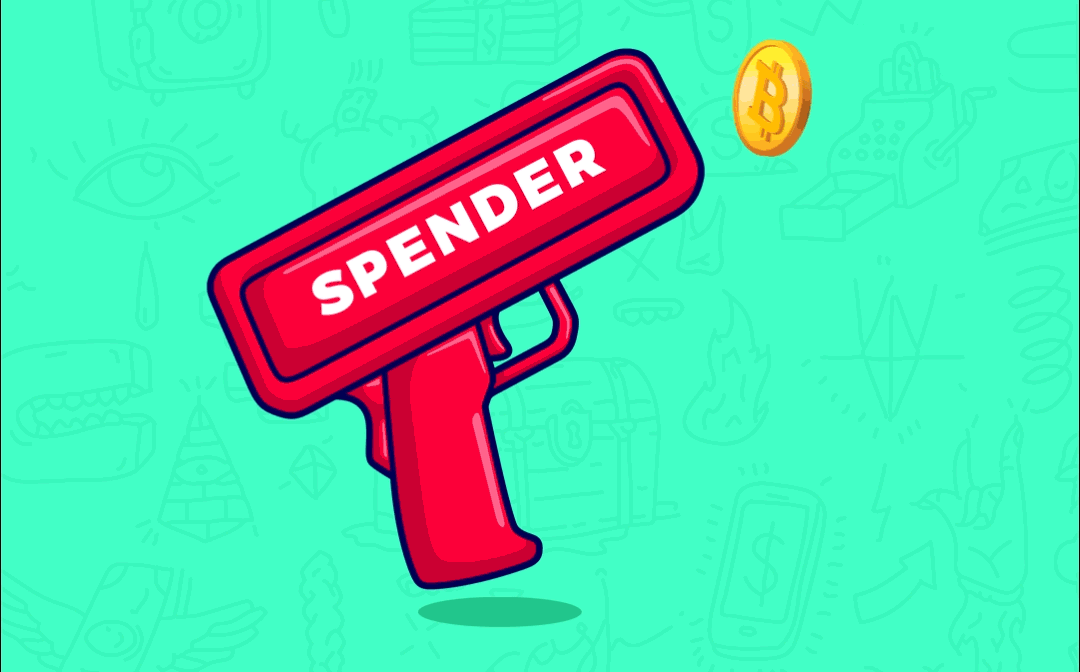Hodling crypto has become a preferred investment option for many crypto enthusiasts (if you’re new here, “hodling” means to hold your crypto in a secure wallet for an indefinite amount of time). While the logic makes sense: hold an asset until its value increases then sell for a profit, there is really a lot more to the digital currency movement than just that.
Market Update: FTX vs Binance
Before we dive in, let’s take a quick look at what’s been happening in the markets this week. Dominating the headlines is the feud between FTX and Binance. In 2019, Binance was an early investor and partner of FTX. Two years later when FTX was a thriving corporation, they bought Binance out for $2b worth of FTT tokens (FTX’s native token).
This week, CEO of Binance, known as CZ, said that the CEO of FTX, Sam Bankman-Fried, had been bad-mouthing his platform to regulators and because of this he would be dumping his $2b worth of FTT. This sent the price crashing 35% overnight and instigated mass withdrawals from the FTX exchange, allegedly over $6b worth.
In the drama, rumors started circulating that FTX’s sister trading arm, Alameda Research, was headed for a crash. The next morning, FTX paused withdrawals on the platform and announced that it was entering into a "strategic transaction" with Binance. This was followed shortly by speculation that after viewing FTX’s books, Binance was backing out of the deal.
On November 9, Binance announced just that, and news also broke that the SEC is investigating FTX for possible securities-law violations. Things then went from bad to worse for FTX, taking the rest of the market down with it. At the time of writing, Bitcoin lost almost 20% value in a week, Ethereum lost 24% and Solana was down 56%. So yeah, maybe hodling isn’t always great.
An Alternative Use For Your Crypto
Following the original intentions of Satoshi Nakamoto, have you tried using crypto for day-to-day living? The technology available today built to facilitate the fluid spending of crypto has come leaps and bounds since the early days of crypto integration. Let the number of companies accepting cryptocurrencies serve as evidence.
While some crypto networks are quicker at executing transactions than others, the truth remains that apps facilitating these payments have leveled up and have designed ways in which to compensate for potential network delays.
Oobit, for instance, uses an off-chain mechanism that executes transactions in an instant, leaving no time lost for the consumer and merchant. The technology allows a user to make a crypto payment to a mobile number saved in their contacts, instantly executed and costing zero fees. The contact, if they don’t already have the app downloaded, will then receive an SMS to let them know the funds are waiting for them.
For bigger companies, there’s an Oobit business option that allows anyone to open a business account and start accepting crypto with built-in mechanisms that can quickly store or sell the incoming digital currency.
This new-age approach to crypto spending essentially eradicates all borders and opens businesses and consumers up to entirely new markets. Secure, fast, and free, spending and sending crypto has become a modern-day no-brainer. And with a long list of merchants now accepting crypto, shopping just got a whole lot easier.
Oobit Technologies Pte, 50 Raffles Place #37-00 Singapore Land Tower, Singapore (048623). is a company registered in Singapore (no:201716443G), that has been approved as Appointed Representative of Oobit Technologies OÜ, Harju maakond, Tallinn, Lasnamäe linnaosa, Väike-Paala tn 2, 11415, (no: 14852617 ). Which is authorized and regulated by the FIU (no: FVR001421 and FRK001304).

